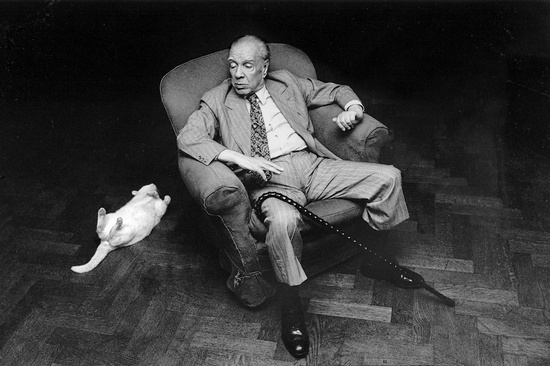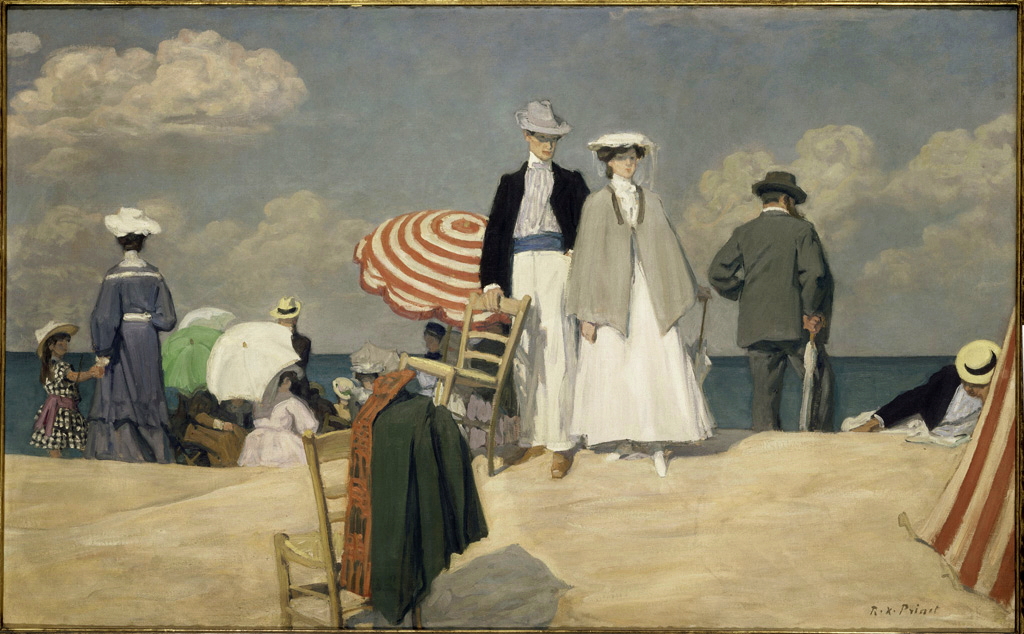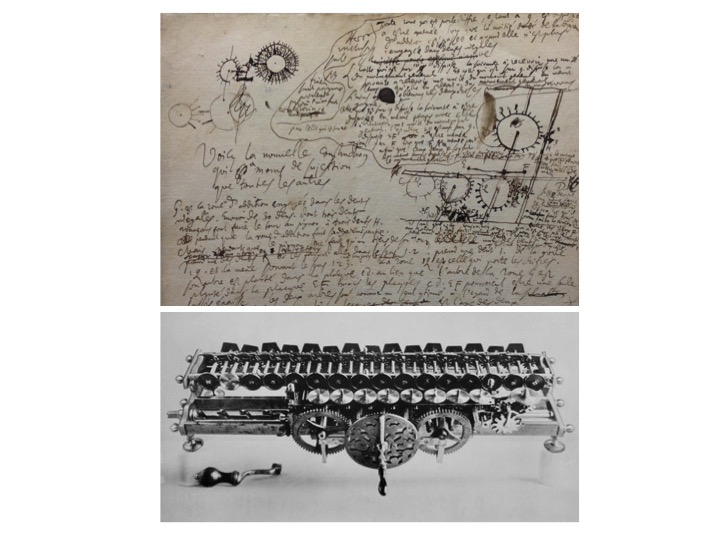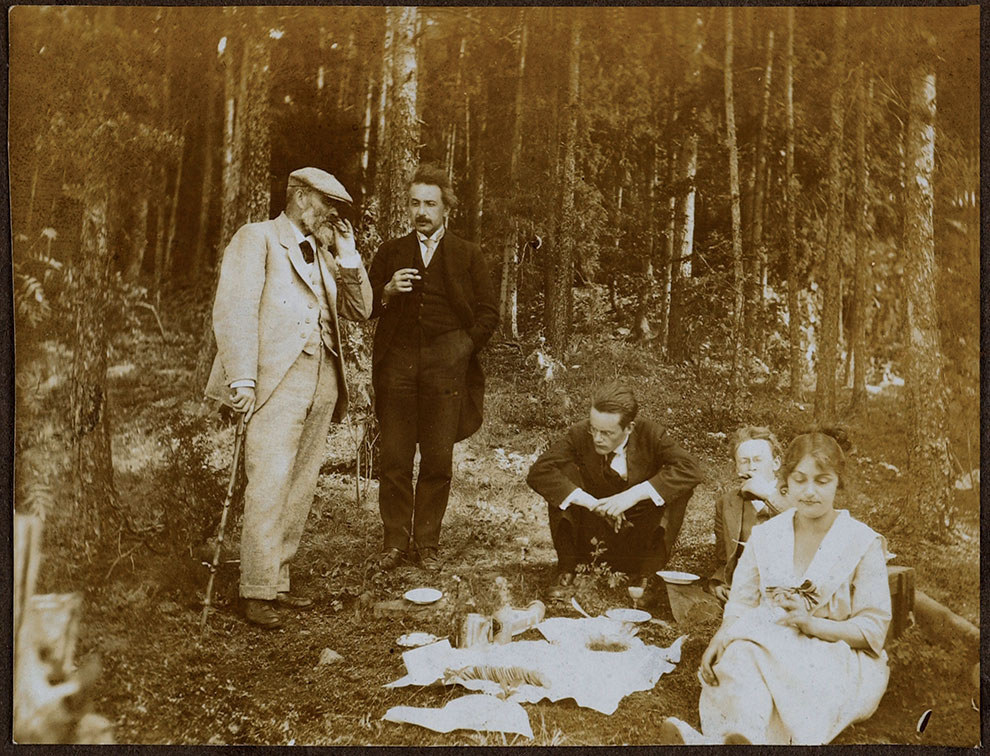In the novel A l’ombre des jeunes filles en fleurs (Within a budding grove), written by Marcel Proust in 1919, Madame Swann says: ¨The soldier is convinced that a certain interval of time, capable of being indefinitely prolonged, will be allowed him before the bullet finds him, the thief before he is taken, men in general before they have to die.¨ Such a high hope also pervades Jorge Luis Borges’ tale El Milagro secreto (The secret miracle), included in the collection Ficciones (Fictions).

Jorge Luis Borges
In this narration, we learn that a writer is going to be executed at 9 am. As he stands in front of the firing squad, thanks to an unexpected intercession, his death is momentarily suspended. First surprised, then grateful, he realises that the world around him came to a timely pause. The bullets froze halfway during their trip, and the curls of smoke from his last cigar have not yet dissipated. In his mind, however, that fraction of an instant will take a full year—enough time to revise his entire literary output. Immobile, fixed like a pinned butterfly, he goes through Virgil’s poems. He takes the opportunity to mentally finish a sluggish play that had been waiting for a proper end, but just when he found it, he was fatally shot. It was 9.02 am. Two precious minutes were magnanimously granted, not a second more.
Borges argued that time could not have possibly stopped, because the writer’s thoughts were still flowing: in short, it is our mind that dictates the tempo. Inasmuch as we are consciously aware of ourselves and what surrounds us, time persists. But what time was he talking about? The internal time of the unfinished play, the writer’s life, the external time of the firing squad and the story itself all converge on one epilogue, leaving us to the idea that Death correctly realigns all timelines, closing all books in synchrony. This tale points to a singularity: an apparent divorce might exist between the metric sense of time and its tensed counterpart.
Proust’s novel inaugurated a new direction in storytelling, featuring a low-pace parade of subjective states, where we often find vignettes, psychological studies of characters and reminiscences. These two examples help to illustrate an intriguing idea: do we use our consciousness to sense time? We appear to perceive events unfurling over that canvas which is our conscious experience. Interestingly, we also grasp their temporal sequence. In this essay and its follow-up, we will succinctly revisit two significant controversies on the nature of time and learn what neuroscientists and philosophers have to say on this elusive subject.

La plage de Cabourg (The beach at Cabourg), painted by René Xavier François Prinet (1910).
Most of Within a budding grove takes place on a seaside resort called Balbec, probably inspired by
Cabourg. © RMN (Musée d’Orsay)/ Hervé Lewandowski.
Time recaptured
One of the first attributes that come to mind when we talk about time is the duration of events. In the 5th century, Saint Augustine reasoned that whatever is measured and computed as duration cannot be in the past, because whatever happened, ceased to be and therefore cannot be perceived any longer, nor it can be in the present since the present lacks any duration. To solve this insurmountable problem, he invoked memory as the necessary bridge between the two.
In The experience and perception of time (Le Poidevin, 2015) we learn that E.R. Clay and William James coined the term “specious moment”. This interval of time goes from a few seconds to about a minute, and represents a duration of time that is perceived both as present and as temporally extended. However, the concept of presentness is more complicated than it may appear: we can sense something that is happening right now, but we can also momentarily hold something in our short-term memory and still recognise it as belonging to the past. But then what is pastness, if such a word exists? Pastness could also be encoded in our memory because it is our memory that forms past-tensed beliefs. According to this view, by merely having a memory of something, we could know that that something already happened, lying further away from our “specious moment.” This approach to characterise past events is troublesome because we can also have false memories: we can recall events that never occurred.

Der Entdecker (The discoverer), painted by Siegfried Zademack (2012).
The “specious moment” could, therefore, define a sliding window over which we integrate what goes on in our conscious experience. The contents of this time interval could be safely labelled as our present experience at any given moment and then moved for storage to vacate space for new incoming experiences. Failure in updating this register could probably compromise our common functioning mode. Many authors believed in the “strength of the memory trace” as a way of explaining how the past is engraved: the older the event, the stronger its persistence. But again, here we encounter a problem because recent events can fade more quickly than older ones.
How do we establish a time order of events? In his article, Le Poidevin discusses two alternative explanations. According to D.H. Mellor, the time at which we formed experiences specifies the temporal order of events, following a protocol that would be insensitive to the contents of those memories. Daniel Dennett’s view is precisely the opposite: the brain might establish the right causal order of events, taking account of the content of the experiences and inferring the correct temporal order.
Newton, Leibniz, and Kant
In the early XVIIIth century Isaac Newton and Gottfried Leibniz held a controversy over the fatherhood of infinitesimal calculus. But this was not the only point of divergence: the nature of time would prove to be another intellectual battlefield. In his article, Kant’s views on space and time (Janiak, 2016), Andrew Janiak digests Kant’s contributions under the light of the XVIIth century metaphysics and the Newton-Leibniz debate. In this context, if time was real and not a product of our mind, then it had to be a substance in its right or a property of a substance.
Newton believed that time was an actual entity that could be objectively measured, a substance that could persist on its own. Leibniz, on the contrary, thought that time was inherent to objects and emanated from their relations. According to Leibniz, time does not exist independently of objects and is merely a property of them. What was Kant’s take on these two conflicting views? He rejected the absolutist transcendental realism supported by Newton, arguing that time is not a substance because it is causally inert and inaccessible (it cannot be affected by interactions with things) and also imperceptible. He also attacked Leibniz’s version of transcendental realism, claiming that time does not depend on substances for its existence.

Top view: Leibniz’s manuscript sketching the first calculating machine. Bottom: Leibniz’s calculating machine from 1694.
To escape from this gridlock, Kant introduced a groundbreaking concept: time is an a priori intuition. In Kant’s terminology, intuition is an objective, singular and immediate conscious representation that becomes apprehensible right away. For instance, I have a direct conscious intuition of “my laptop” right in front of me, e.g. I can represent it without invoking any accessory bit of information. A concept, however, is something different. Concepts are also objective but general and mediate. To clarify the representation of “my laptop” as a concept, I would need to refer to other concepts like “computing portable device”, “battery operated”, “operator of symbols”, etc. Now for Kant, time is not something objective and real, neither a substance nor the property of a substance; instead it is something ideal, a product of our mind. But is it a concept? He argues that it cannot be a concept because we cannot grasp it by referring to other concepts that define it; in short, we cannot place it within other classes. Time pertains to a class of its own.
After discussing concepts and intuitions as different types of objective conscious representations, Kant went one step further and reflected on how we get to those representations. He distinguished between a priori-which does not require previous experience- and empirical ways of representing things. He concluded that time is an a priori intuition because it is an innate product of our mind and we can represent it without any prior experience of it. This idea was the stepping stone to the development of his philosophical system, known as transcendental idealism.
Einstein and Bergson: Relative time vs absolute time
In her book The physicist and the philosopher (Canales, 2015), Jimena Canales offers a gripping account of the famous debate on the nature of time held in 1922 between Henri Bergson and Albert Einstein at the Societé Française de Philosophie in Paris. This clash and its ramifications sent ripples through the international community of physicists and philosophers, which ultimately led to their alignment on either side of an intellectual rift that would oppose two fundamentally different views on this subject. Canales makes the point that this controversy that ended with the setback of Bergson’s influence ushered in a period of expansion of science as a dominant framework to understand our world.
Bergson maintained that time included aspects that we cannot entirely understand if we use the typically materialistic approach of science. He wanted to overcome Descartes’ mechanical view of the universe and claimed that our subjective experience of time is a necessary part of its study. The mystery of time, which was the fabric of the universe and our lives, transcended any attempt to quantify it; arid science, with its emphasis on clocks and measuring devices, could only grasp it partially. He believed that time was absolute, making itself evident through the constant change of the universe, like an unstoppable vital impulse (élan vital) that traversed all processes. Bergson was not so much interested in clocks: he wanted to know, first of all, why we are obsessed with time and why we created watches in the first instance.

Albert Einstein on a picnic day. Albert Einstein Archives / Princeton University Press
Einstein was awarded the Nobel Prize in Physics in 1921, but he would only receive the prize one year later and not for relativity. An internal memorandum of the Nobel Institute later revealed that Bergson’s critique had been central to this decision. Although in 1919 Sir Arthur Eddington had provided experimental evidence supporting Einstein’s predictions that light bends in gravitational fields, relativity was far from being widely accepted. Even the people whose work had been seminal for the development of this theory were sceptical about its implications.
Henri Poincaré, for instance, did not believe that it was revolutionary and indeed took sides with Bergson against materialism and mechanistic philosophies. He was a supporter of conventionalism, a current of thought that maintained that scientists choose one theory in particular just because it is convenient. Einstein’s view was precisely the opposite; he believed that theories should be interpreted as a model of the Universe and not just a suitable formulation. Likewise, Hendrik Lorentz, who developed the relativity equations together with Einstein, believed that there was a difference between time and space and continued to look for an absolute concept of time.
An essential consequence of relativity implied that the time-space frame of a moving object slows down and contracts when measured in the observer’s frame. If we would place a clock in a space rocket and another one on Earth, which one would give the correct time? Einstein would reply both because time depends on the system of reference and is not absolute, as Bergson maintained. Einstein accepted that we could have a psychological understanding of time, (for instance, when we are too anxious or bored), but this was not objective, and therefore irrelevant to its study. Einstein accused Bergson of objectifying psychological aspects of time that are purely mental constructs. Bergson, in turn, stated that by considering a time-space continuum and denying an absolute time, Einstein “was grafting a dangerous metaphysics into his science.”
Other efforts tried to reconcile these two opposing views. Heidegger sketched a possible third way that could overcome this duality. He argued that human life does not happen in time, but instead is time itself. Heidegger incorporated the dimension of “everydayness”, where the time measured by clocks, the time of the Universe would be interwoven with the psychological time, the time of our lives.
Perhaps it would be fitting to end this article in the same way that we started it. Bergson’s vitalism and its emphasis on the psychological intuition of time were a significant influence on Marcel Proust’s writing. Indeed both men shared more than philosophical interests: Bergson married Proust’s cousin.
“The time which we have at our disposal every day is elastic; the passions that we feel expand it, those that we inspire contract it; and habit fills up what remains.” (Madame Swann in Within a budding grove).
References
Marcel Proust, A l’ombre des jeunes filles en fleurs, Editions Gallimard, 1954.
Jorge Luis Borges, El milagro secreto (en Ficciones), Emecé, 2004.
Le Poidevin, Robin, “The Experience and Perception of Time”, The Stanford Encyclopedia of Philosophy (Summer 2015 Edition), Edward N. Zalta (ed.), URL = <https://plato.stanford.edu/archives/sum2015/entries/time-experience/>.
Janiak, Andrew, “Kant’s Views on Space and Time”, The Stanford Encyclopedia of Philosophy (Winter 2016 Edition), Edward N. Zalta (ed.), URL = <https://plato.stanford.edu/archives/win2016/entries/kant-spacetime/>.
Jimena Canales. “The Physicist and the Philosopher: Einstein, Bergson and the debate that changed our understanding of time”. Princeton University Press, 2015.











